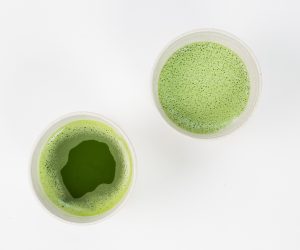
Top 12 Health Benefits of Watermelon
Jillian Levy, CHHC via Dr. Axe – Watermelon is considered a summertime staple, popping up at pool parties and summer barbecues all season long. While it’s well-known for its ability to keep you cool and hydrated, there are tons of other health perks associated with this popular fruit that are not as well-known.
What are the benefits of eating watermelon? As you’ll learn more about below, this fruit is low in calories, a good source of vitamins C and A, and has been linked to everything from reduced muscle pain and enhanced exercise recovery to improved vision and skin health.
Nutrition Facts
The watermelon plant, also known by its scientific name Citrullus lanatus, is a member of the flowering plant family known as Cucurbitaceae.
Is watermelon a fruit?
Yes, the spiky, low-to-the-ground watermelon plant, which originates from southern Africa, produces the popular edible fruit we now commonly consume.
It’s believed that wild varieties that were grown many years ago were more bitter than the types we eat today, thanks to the presence of a compound called cucurbitacin. Historically, many varieties, with different colors and tastes, were grown in various parts of the world, including across Africa.
Believe it or not, it’s estimated that there are actually more than 1,200 different cultivars of watermelon still in existence. This includes the lanatus, crimson sweet and jubilee watermelons.
Unbeknownst to most people, the entire watermelon is edible, including the rind and seeds. In fact, watermelon rind (which can be pickled or even stir-fried) is very high in citrulline, a compound that’s transformed into the amino acid arginine, which is associated with cardiovascular benefits and more.
The seeds are also chock-full of amino acids, the “building blocks of protein,” as well as some trace minerals, which is why they are included in some plant protein powders.
Is watermelon a “superfood”?
While it may not be as nutrient-dense as fruits such as berries or oranges, there are still some impressive benefits associated with watermelon nutrition.
All varieties are loaded with antioxidants and have been associated with a wide range of health benefits — such as better heart health, enhanced immunity and increased weight loss.
Two especially protective compounds found in this fruit are citrulline and lycopene.
According to the U.S. Department of Agriculture’s data on watermelon nutrition, one cup (about 152 grams) contains approximately:
- 46 calories
- 11.5 grams carbs
- 1 gram protein
- 0.2 grams fat
- 0.6 grams dietary fiber
- 12.3 milligrams vitamin C (21 percent DV)
- 865 international units vitamin A (17 percent DV)
- 170 milligrams potassium (5 percent DV)
- 15.2 milligrams magnesium (4 percent DV)
- 0.1 milligrams thiamine (3 percent DV)
- 0.1 milligrams vitamin B6 (3 percent DV)
- 0.3 milligrams pantothenic acid (3 percent DV)
- 0.1 milligrams copper (3 percent DV)
- 0.1 milligrams manganese (3 percent DV)
Top 12 Benefits of Watermelon
Here are some of the top benefits of watermelon:
1. Can Help Support Immunity
In animal studies, watermelon consumption has been linked to reduced inflammation and improved antioxidant capacity.
Lycopene, one of the carotenoids found in abundance in this fruit, has potent antioxidant properties and can help reduce oxidative stress. It may also help keep your heart healthy, as well as defend against certain types of cancers, cardiovascular disorders, diabetes and macular diseases, according to recent research.
Studies show eating it can also increase levels of arginine, an important amino acid that’s used for the synthesis of nitric oxide. Not only does nitric oxide help dilate your vessels to keep blood flowing efficiently and reduce the risk of high blood pressure, but it’s also involved in regulating the immune system.
This fruit is also a great source of vitamin C, a key micronutrient that does double duty, acting as both an antioxidant and immune enhancer to keep your body healthy and ward off chronic disease. Antioxidants can help fight free radicals and protect the cells against oxidative damage and stress.
2. May Improve Heart Health
Watermelon contains a good amount of both potassium and magnesium, two important nutrients used to help remedy conditions like high blood pressure. Consuming proper amounts of potassium and magnesium from a nutritious diet seems to be associated with improved heart health, according to research, along with a decreased risk of death from heart disease.
A review published in the journal Advances in Nutrition showed that eating plenty of potassium-rich foods like fruits and vegetables can positively impact blood pressure levels, which may be useful in reducing the risk of conditions such as stroke and heart attacks.
Lycopene also benefits heart health by reducing inflammation, fighting oxidative stress and potentially improving blood lipid levels.
New research, including results from a 2019 study, suggests that drinking 100 percent watermelon juice is “a palatable, effective means of increasing serum lycopene in older adult women, a group at risk for low carotenoid intake.”
Studies have also shown that watermelon benefits may include helping relieve arterial stiffness, balance cholesterol and improve systolic blood pressure in adults with hypertension.
3. Can Relieve Pain and Soreness
In addition to the potential benefits of watermelon juice, this fruit also packs a good amount of vitamin C into each serving. Vitamin C has been shown to protect cartilage and bones, aid in the repair of tendons and ligaments, and help speed up wound healing.
Potassium and magnesium, two nutrients that are also found in this type of melon, are important for muscle recovery and pain relief. Potassium, in particular, aids in the prevention of muscle cramps following exercise and helps you heal from injury more quickly.
4. Helps Prevent Kidney Stones
Studies have shown that the potassium found in fruits and vegetables is very helpful in cleaning toxins and washing out waste from the blood, helping prevent kidney stones.
Watermelon benefits also include being a natural diuretic. It helps increase urine production to transport waste and toxins out of the body to protect against kidney stones.
5. Aids in Hydration, Digestion and Detoxification
One of the top benefits of watermelon is its high water content. In fact, it is estimated to be composed of about 91 percent water, which can aid in detoxification and help rid the body of excess water and fluids, relieving uncomfortable bloating and swelling.
Potassium and magnesium are also important for detoxification.
Potassium acts as an electrolyte and promotes circulatory health while also helping manage blood flow and hydration levels within the body, allowing oxygen to reach your cells. At the same time, magnesium reduces water retention in the gut to beat bloating and help you lose water weight.
Another interesting finding from recent animal studies is that consumption of watermelon juice significantly lowers fasting blood glucose levels in diabetic mouse models. The juice seems to induce gut microbiome compositional changes that can have positive metabolic effects.
6. May Help Fight Cancer Cells
This fruit may act as a potent cancer-fighting food, squeezing a hearty dose of antioxidants and watermelon health benefits into each serving.
An important benefit of watermelon for men is that lycopene, one of the main carotenoids found in the fruit, has been linked to a lower risk of prostate cancer in some studies. Research also shows that lycopene plays a part in keeping cell membranes strong so they can protect themselves from toxins that can potentially cause cell death or mutation.
It’s also a great supplier of antioxidants vitamin C and vitamin A, both of which help fight free radical damage and prevent DNA mutation to block the formation of cancerous cells. Studies have also shown that high doses of vitamin C can enhance the cancer-fighting effects of certain drugs used in chemotherapy while also reducing adverse side effects of traditional cancer treatments.
7. Helps Protect Skin Health
Watermelon benefits skin health because it’s one of the top antioxidant foods available. Due to its high content of antioxidant vitamins A and C, watermelon benefits for skin include its ability to protect the cells against damage and fight free radical formation to slow aging and keep your skin looking healthy.
Vitamin C is especially important for skin health. It helps boost collagen production while also helping prevent sun damage.
Meanwhile, vitamin A is key to maintaining the health of your cells and protecting against UV damage.
8. Supports Healthy Vision
Important nutrients that play a role in protecting eye health — including beta-carotene, vitamin A, vitamin C, lutein and zeaxanthin — are also housed in this giant fruit and sit among the many benefits of watermelon. Studies have shown that a serious vitamin A deficiency, for example, can lead to macular degeneration, a condition characterized by the thickening of the cornea that could eventually lead to blindness.
This summertime fruit is a great supplier of beta-carotene, which is the form of vitamin A found in plants. Getting enough beta-carotene in your diet can aid in the prevention of macular degeneration, the leading cause of age-related blindness.
9. May Help With Weight Loss
Is watermelon good for you to lose weight? While it does contain natural sugar and carbs, this isn’t necessarily a bad thing depending on the diet you follow and how much you consume.
Despite being rich in a multitude of important vitamins and minerals, there are a low amount of calories in watermelon, making it a great addition to a nutritious weight loss diet. For this reason, watermelon benefits weight loss by promoting satiety and curbing cravings to keep you on track toward your health goals.
A 2019 study published in Nutrients found that the potential mechanisms by which watermelon consumption improves body weight management is by increasing satiety (fullness) and postprandial glucose and insulin response.
After four weeks of intervention in overweight and obese adults, consuming two cups of watermelon rather than cookies led to a significantly higher satiety response (lower hunger, prospective food consumption and desire to eat and greater fullness) plus significantly decreased body weight, body mass index (BMI), systolic blood pressure and waist-to-hip ratio.
10. Can Improve Exercise Recovery
Watermelon, including the juice from this fruit, has been linked to enhanced muscle recovery in athletes and reduced soreness. It can help you hit the gym more effectively to reach your weight loss goals.
A 2020 study found that by providing electrolytes and reducing dehydration, one of the top benefits of watermelon is its ability to promote post-exercise recovery and alleviate aches and pains.
Interestingly enough, one study in the Journal of Agricultural and Food Chemistry looked at the effects of watermelon juice as a functional drink for athletes. After 24 hours of supplementation, athletes experienced improved heart rates that were more beneficial for muscle recovery in addition to less overall soreness and muscle aches.
A 2016 study found that watermelon puree consumption fully supported the energy demands of exercise and increased post-exercise blood levels of nutritional components (l-citrulline and l-arginine), antioxidant capacity and total nitrate status. It did not, however, influence post-exercise inflammation and changes in innate immune function.
Another 2016 study also found that it offered benefits to those doing high intensity or endurance exercise, but overall it didn’t prolong time to exhaustion.
11. Can Help Relieve Acid Reflux
One of the benefits of watermelon and muskmelon (along with other types of melons) is that they are often used to reduce acid reflux symptoms. Melons are a part of the GAPS diet, which is designed to help treat digestive diseases and reduce inflammation.
Melon is believed to soothe the gastrointestinal tract and regulate pH levels while also lessening inflammation and acid production throughout the body. That said, due to its fructose (sugar), watermelon may trigger discomfort in people sensitive to high FODMAP foods.
12. May Benefit Reproductive/Sexual Health
What does watermelon do sexually? As mentioned above, consuming the juice and flesh of this fruit can help relieve arterial stiffness, support circulation and improve blood pressure.
This suggests that watermelon may also be good for you sexually, as it can help with blood flow and therefore arousal.
Additionally, in some studies citrulline (found in the rind) has demonstrated to be a safe and well-accepted alternative treatment for mild to moderate erectile dysfunction in men.
Where to Find/How to Use
When and where can you buy fresh watermelon?
Today, most states in the United States grow watermelon commercially, with Georgia, Florida, Texas, California and Arizona the largest producers.
Watermelons are tropical or subtropical plants and need temperatures higher than 77 degrees Fahrenheit to grow. Watermelon season is during the warmest months of the year, with most commonly available types sold in the northern regions of the U.S. in the summer — hence why they have become a summer barbecue staple.
In other parts of the world like Africa, the Middle East, India and Asia, this fruit is popular for its ability to grow in hot temperatures and provide hydration in dry climates.
Certain watermelon plants have been genetically modified to produce melon with no seeds or small white seeds. A lot of research has actually been put into breeding disease-resistant varieties of melon and developing seedless strains that keep all of the nutrients intact.
It’s believed that seedless types offer similar health benefits to the kind with seeds.
It’s always best to purchase organic varieties of commonly modified crops whenever possible. Because melon seeds are often treated with synthetic growth simulators in the production of non-organic watermelon, in order to reduce your risk of contamination with all chemical synthetic additives, look for naturally grown, organic melon.
How to pick a watermelon:
A ripe melon has a smooth, hard rind that is usually green with dark green or yellow spots or stripes. The inside, the edible flesh, is usually bright pink with big black seeds but can also come in other hues.
For example, you may be able to find deep red, orange, white or yellow melons in some markets.
How can you tell if a watermelon is ripe?
How do you know if this fruit is ripe? A fresh watermelon is ready to cut open and eat when it has a yellow or cream color on the bottom of the melon, as opposed to bright white.
Also, try knocking on the melon and picking it up to find one that is heavy and dense for its size. This typically means that all of its juices have been produced and it’s ready to crack open.
Here’s how to cut a fresh watermelon:
- Lay the melon on a cutting board and cut off both ends first.
- Then stand up the melon so you can slice in half.
- Slice down the middle to create two big halves, then cut in half again to create quarters.
- Slice each quarter intro triangular pieces.
- Once cut up, some people like to lightly salt the fruit to enhance the flavor, but this is optional.
- If not eating within one to two hours, store in the refrigerator for up to several days.
Can you eat watermelon seeds?
Unbeknownst to most people, there are many benefits of watermelon seeds and watermelon juice.
The seeds are considered a good source of proteins, oils and carbohydrates. They also provide omega-3 and omega-6 fatty acids, magnesium, zinc, copper, potassium, and more.
You already know that this melon has a high water content (hence the name), and studies show that drinking this juice is a good way to obtain hydrating fluids along with antioxidants, essential electrolyte minerals and vitamins.
Although watermelon seeds are perfectly safe to eat, they should actually be sprouted and shelled to maximize the potential health benefits. This process can bump up the protein content of the super seed and make it easier for your body to access and absorb the incredible nutrients held inside.
Recipes
New to adding watermelon to recipes? There are plenty of ways to include this tasty fruit into your diet.
Try adding some to drinks or smoothies for a weight loss-friendly punch of flavor. You can also use it to make refreshing watermelon water, or try freezing it for a cool summer treat.
Another popular way to enjoy is by sprinkling salt on watermelon or adding it to salads, fruit cups and desserts. You can also munch on a watermelon slice or two as is for a satisfying, no-fuss snack.
- Watermelon Salad
- Easy Watermelon Sorbet
- Hydrating Watermelon Smoothie
- Watermelon Curry
- Watermelon Agua Fresca
What time of day is best to have watermelon? For example, considering they are high in water and sugar, is it OK to eat watermelons at night?
Feel free to enjoy some whenever you’re in the mood, such as before a workout or after dinner as a healthy treat. However, keep in mind that the high water content may send you to the bathroom overnight.
Risks and Side Effects
Are there any negative effects watermelon you should be aware of?
Melons aren’t known to be common allergens or to produce any common medication interactions. However, these tasty fruits are best enjoyed in moderation due to their relatively high sugar content.
How much watermelon should you eat daily?
For most people, one or two cups per day is a good amount. Because there is a relatively high amount of natural sugars (such as glucose, fructose and sucrose) and carbs in watermelon, with little fiber and almost no protein or healthy fats, eating larger amounts may spike blood sugar levels.
When should you not eat watermelon?
For those who have a form of known insulin resistance, including those who are prediabetic or who have diabetes, opting for lower-sugar fruits that also have more fiber, like berries, may be beneficial. Otherwise sticking to small servings of this fruit is likely not a concern.
If you have any known allergies to other fruits, be careful about adding any new fruits to your diet, including melons.
Is watermelon ever fattening?
If you are someone who is otherwise healthy and does not need to lose weight, watermelon is a safe and nutrient-dense food choice as long as you enjoy in moderation and keep your portion size in check.
Is it OK to eat watermelon every day?
Yes, although variety in your diet is encouraged. Try pairing it with other foods that have healthy sources of protein, fiber and fats, too, in order to slow down the effect of the fruit’s sugar on your blood sugar levels.
Watermelon vs. Melon vs. Pineapple: Which Is Best?
For centuries, many types of melon have been used in various forms of traditional medicine for their powerful healing effects and health-promoting properties.
In fact, in Traditional Chinese Medicine, all forms of the watermelon are used, including the watermelon leaves, rind and seeds. When combined with other herbs or boiled into tea form, the benefits of watermelon seeds include relief from urinary tract infections and increased urination.
Meanwhile, the flesh of the melon is believed to improve the health of the heart, bladder and kidneys while also clearing heat and promoting calmness.
On an Ayurvedic diet, melon is used for its cooling properties and ability to act as an aphrodisiac, strengthen the blood and promote liver health. According to Ayurveda, however, it’s important to eat foods like melon alone rather than pairing them with heavy foods to allow proper digestion in the body.
Pineapple and melon are popular summertime treats that are favored for their sweet flavor and cooling properties. However, there are a few key differences that set the three apart.
By definition, melon is any plant belonging to the Cucurbitaceae family, which also includes watermelon. The term “melon,” though, is often used to describe specific fruits like cantaloupe, honeydew and muskmelon.
One of the main differences between these types of melons and watermelons is their seeds. While watermelons have small seeds dispersed throughout the fruit, melons contain a central seed cavity.
Both are known for their high water content, delicious flavor and the low amount of calories in watermelon and melon alike.
Pineapple, on the other hand, is a tropical plant produced by a herbaceous perennial tree that typically grows up to five feet tall. It’s higher in calories and natural sugar than melons and is known for its distinct sweet flavor.
It also contains a special enzyme known as bromelain, which is believed to possess anticancer properties and has been shown to treat conditions like diarrhea, osteoarthritis and bronchitis.
Conclusion
- The watermelon is a member of the Cucurbitaceae family, a group of plants with many different species grown all around the world.
- Why is watermelon healthy? It’s low in calories but high in important micronutrients, like vitamin C and vitamin A.
- Benefits of watermelon can include supporting eye health/vision, improving immunity, enhancing heart and skin health, supporting weight loss, and more.
- There are plenty of ways to add it to your diet, ranging from refreshing desserts to sorbets, smoothies and salads.
- This fruit is not known to be a common allergen or produce any common medication interactions. However, it is best enjoyed by all in moderation due to its relatively high sugar content.






